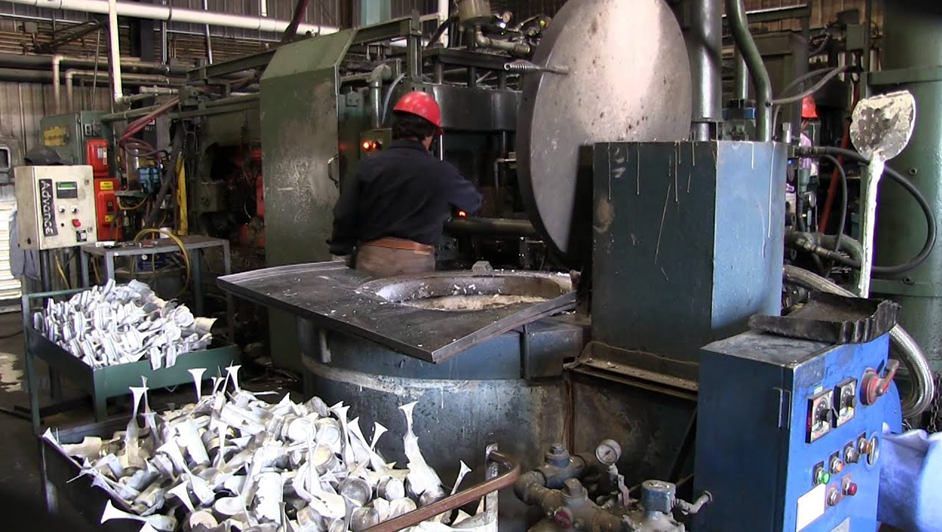Companies are constantly seeking innovative solutions to produce high-quality products efficiently and cost-effectively. One such solution that has gained popularity in recent years is magnesium die casting. This manufacturing process offers a lightweight and high-strength alternative to traditional methods, making it ideal for a wide range of industries.
Magnesium die casting involves injecting molten magnesium alloy into a steel mold, also known as a die. The alloy solidifies quickly, allowing for the production of complex and intricate parts with fine details. Compared to other casting methods, such as aluminum or zinc die casting, magnesium die casting offers several advantages.
First and foremost, magnesium is the lightest structural metal available, weighing only about two-thirds of aluminum and one-quarter of steel. Its low density makes it an attractive choice for applications where weight reduction is critical, such as aerospace, automotive, and electronics industries. By replacing heavier materials with magnesium, manufacturers can achieve significant weight savings without compromising strength and durability.
Despite its lightness, magnesium exhibits remarkable strength-to-weight ratio, outperforming many other metals. This exceptional strength allows for the production of parts with thin walls and complex geometries, reducing material usage and manufacturing costs. Moreover, magnesium’s high stiffness and dimensional stability make it an excellent choice for components that require tight tolerances, ensuring precise fit and functionality.
Another noteworthy advantage of magnesium die casting is its excellent thermal conductivity. Magnesium dissipates heat rapidly and evenly, making it an ideal material for applications exposed to high temperatures, such as engine components, power tools, and electronic devices. By efficiently transferring heat away from critical areas, magnesium parts can withstand extreme thermal conditions, improving overall performance and reliability.
Furthermore, magnesium offers outstanding electromagnetic shielding properties. It effectively absorbs and attenuates electromagnetic waves, making it suitable for electronic and communication equipment that requires protection against interference. This property is particularly crucial in the age of wireless communication and IoT devices, where electromagnetic compatibility is paramount.
Despite the numerous benefits, it is important to note that magnesium has some inherent challenges. For instance, it is highly reactive and prone to corrosion, especially in humid or corrosive environments. However, modern surface treatment techniques, such as chromate conversion coating and electroless nickel plating, can significantly enhance magnesium’s corrosion resistance, ensuring long-term durability.

Moreover, as with any manufacturing process, proper design and engineering considerations are crucial to maximize the advantages of magnesium die casting. Designers need to carefully analyze part requirements and optimize geometry to minimize material usage while maintaining structural integrity. Simultaneously, engineers must select appropriate alloy compositions, ensuring the desired mechanical properties and casting characteristics are achieved.
Magnesium die casting offers a lightweight and high-strength solution for manufacturers across various industries. Its unique combination of low density, exceptional strength-to-weight ratio, thermal conductivity, and electromagnetic shielding properties makes it an attractive choice for a wide range of applications. By harnessing the advantages of magnesium die casting and addressing its inherent challenges, manufacturers can achieve significant weight savings, enhance product performance, and stay competitive in today’s demanding market. So, if you are looking for a manufacturing process that delivers on strength and weight reduction, magnesium die casting is undoubtedly an option worth exploring.
-

- โลหะผสมแมกนีเซียม thixomolding ชิ้นส่วน UAV หล่อขึ้นรูป C
-

- High precision magnesium thixomolding components laptop housing cover A
-

- Magnesium alloy bike parts & componenets for kid’s push bike
-

- ชิ้นส่วนและส่วนประกอบหล่อขึ้นรูป OEM
-

- High precision magnesium thixomolding components UAV cover
-

- Integrated 3-spoke wheel for MTB with CNC machining &surface treatment

 0086-750-5616188
0086-750-5616188 +86 13392089688
+86 13392089688 sales@zhongmei-tech.com
sales@zhongmei-tech.com







